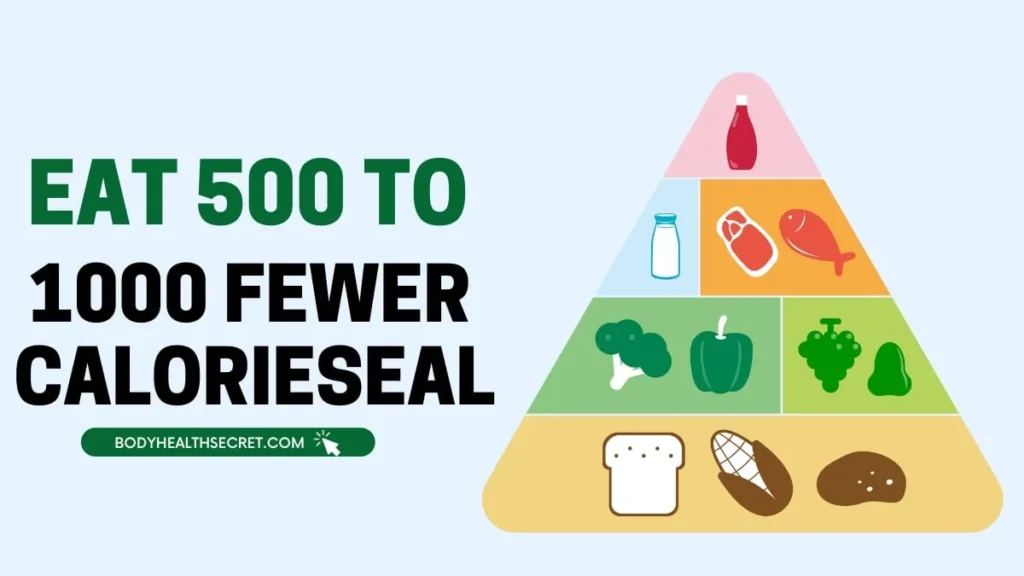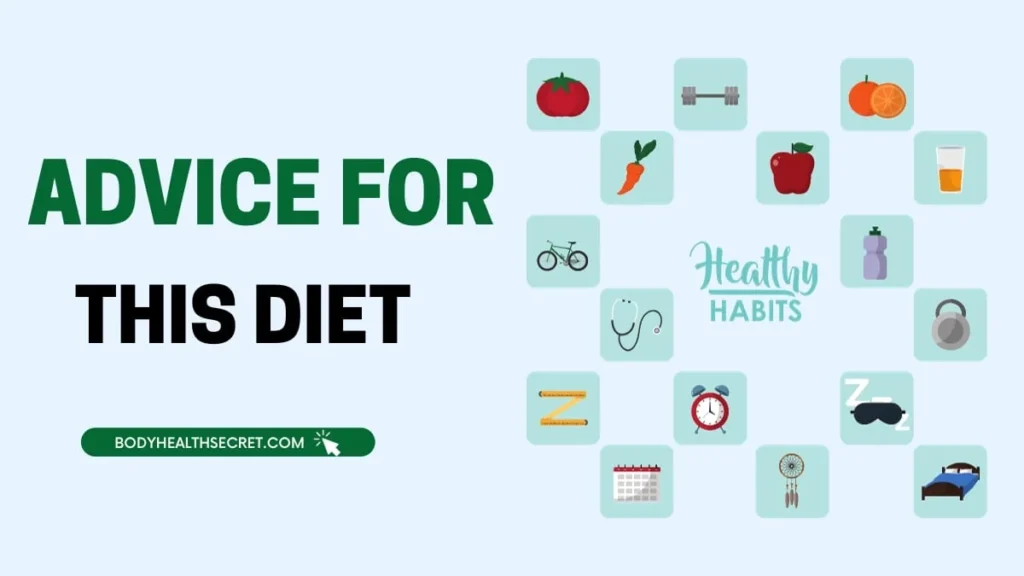It’s important to know that trying to How to lose 10 kg in 1 month without exercise working out is very hard and could be dangerous.
Table of Contents
This is the reason:
A safe and healthy rate of weight loss is between 1 and 2 kg per week. A lot more weight loss than that should be your goal in a month.
When people want to lose weight quickly, they often cut back on calories too much. This can make them tired, cause them to lose muscle, and keep them from getting enough nutrients.
Putting off exercise may make it harder to lose weight and even make you more likely to gain it back if you want to keep it off.
You don’t have to work out to lose weight, but it is very important to keep your muscle mass and speed up your metabolism. These two things will help you keep the weight off in the long term.
If you want to lose weight in a good way that will last longer, you might want to try the following:

Focus on cutting calories by a small amount. Try to eat 500 to 1000 fewer calories every day than you burn. At a steady rate of 1-2 kg per week, this will help you lose weight.
Be sure to eat good food. Your plate should have fruits, vegetables, whole grains, and lean foods. You won’t eat too many calories from these foods because they make you feel full and are high in nutrients.
Do something active to stay healthy. Even easy things like swimming, yoga, or long walks can help you lose a lot of weight.
Talk to a registered dietitian or health care worker. They can help you make a good plan that will keep you safe.
Remember that it takes time to lose weight, not just one run. If you work on healthy habits that you can keep up, you can reach your goals and lose weight for good.
To lose 10 kg in a month, should you work out? That’s the main question.
Losing ten kilograms in a month is an ambitious target, and there are a lot of factors to consider when deciding whether or not to exercise in order to achieve it.
Most people who wish to reduce their weight should exercise for the following reasons:
- Exercise causes calorie expenditure to exceed caloric intake. You can lose weight by maintaining this calorie balance.
- Exercise has several health benefits beyond reducing body fat. When you do this, you lessen your chances of developing cardiovascular disease, diabetes, and even some cancers.
Losing ten kilograms in a month is an ambitious target, and there are a lot of factors to consider when deciding whether or not to exercise in order to achieve it.
Again Most people who wish to reduce their weight should exercise for the following reasons:
- Exercise causes calorie expenditure to exceed caloric intake. You can lose weight by maintaining this calorie balance.
- Exercise reduces calorie intake.
- Makes you stronger: By increasing your muscle mass, you may enhance your metabolic rate and hence your calorie expenditure, even when you’re not exercising.
- Building muscle through exercise
Exercise has several health benefits beyond reducing body fat. When you do this, you lessen your chances of developing cardiovascular disease, diabetes, and even some cancers.
Physical exercise is good for your health in many ways.
However, you should also consider the following potential drawbacks:
Rapid weight loss isn’t necessarily a positive thing. Aiming to lose 10 kg in a month is too rapid a weight reduction, which can have negative effects on your health, including fatigue, muscle loss, and nutritional deficiencies.
- Exercise isn’t everyone’s cup of tea. If you don’t like exercising, you’re less likely to do it regularly.
Should you exercise if your goal How to lose 10kg in 1 month without exercise?
You will be faced with a decision in the end. But you should carefully consider the pros and cons. Some considerations are as follows:
Depending on your current fitness level, you may be able to manage a more demanding exercise program despite your hectic schedule. Starting out gently and gradually increasing your fitness level is the way to go if you’ve never exercised before.
Healthy for you: It is recommended that those with preexisting health conditions consult a physician prior to beginning an exercise regimen.
As for your intentions, focusing on creating a lifestyle that incorporates both nutritious eating and frequent exercise is the best way to lose weight and keep it off permanently.
Some suggestions for including physical activity in your weight loss program are:
- You should ease into your workouts and gradually increase their duration and intensity.
- Finding something you enjoy will increase the likelihood that you will continue doing it.
- Increase your aerobic and strength training routines.
- Listen to your body and get some sleep when you’re tired.
Remember that it takes time to lose weight. Do things at your own pace and create healthy adjustments that you can maintain.
When in doubt about the health benefits of exercise, it is better to see a doctor or a certified nutritionist. A safe and effective weight-loss strategy may be devised with their assistance.

Expert Advice for This Diet
I can’t give you skilled advice about your eating until I know more about it. I need knowledge about the How to lose 10kg in 1 month without exercise following things in order to give you the best advice:
Tell me about the foods you eat every day. (like veggie, low-carb, high-protein) How many calories do you want to eat?
Do you have to follow any rules or allergies when it comes to food?
Could you tell me about your long-term exercise goals?
Once I know more about your food needs and goals, I may be able to put you in touch with authorities who can give you personalized help, like certified personal trainers or registered dietitians.
In the meantime, here are some general tips from experts on how to improve your food and lose weight:
Boost your intake of whole, raw foods. There are many more, such as whole grains, lean foods, colored fruits and vegetables, and healthy fats.
Eat less prepared foods, sugary drinks, and fats that are bad for you. These meals are high in calories and nutrients, so it might be hard to lose weight while eating them.
Make sure you eat and snack at regular times. This will help you control how much food you eat in the long run.
Do not forget to drink lots of water. It’s good for your health to feel full on less water.
Keep up your workouts. Regular exercise burns more calories and builds muscle, which both help you lose weight by speeding up your metabolism.
Boost your intake of whole, raw foods. There are many more, such as whole grains, lean foods, colored fruits and vegetables, and healthy fats.
Monitor your weight daily.
Making a daily note of your weight might help you lose weight and keep it off afterwards. But don’t hurt yourself or the world by doing it. Here are some ideas:
Always use a level surface, and make sure your scale is right when you choose a scale.
Setting a daily weight goal and sticking to it is important if you don’t want your weight to change because of what you eat or drink.
If you keep a weight log or use an app, this could help you see themes and changes over time.
Focus on successes that don’t have to do with losing weight: Don’t give up, because the number on the scale won’t change. You should also be happy when you reach other goals, like having more energy, a better mood, or clothes that fit better.
Leave the figure out of your mind. Remember that your weight is only one sign of how healthy you are in general. If you stick to a healthy lifestyle and choose healthy foods, the weight will come off.
For those who want to stay at a good weight, here are some more tips:
You shouldn’t weigh yourself in the morning. Your weight may change during the day because of things like being dehydrated.
To avoid getting the wrong number, don’t weigh yourself right after eating or drinking.
Do not compare things. Something that is good for one person’s body might not be good for another.
When in doubt, talk to a professional. If you are afraid about your health because of your weight, talk to a doctor or a qualified nutritionist.
If not, I hope these ideas help you find healthier ways to keep track of your weight in the long run!
Every day, drink 2 to 3.25 kg (8 to 13 glasses) of water.
The daily recommended amount of water is measured in liters, not kilos or glasses. It is important to stay hydrated for good health. A daily goal of 2.25 to 3.25 kg of water is too high and could be damaging.
The amount of water that you should drink every day is:
Most healthy people only need about 2 to 2.5 liters of water every day. There you have it.
Things that affect consumption—age, level of physical exercise, weather, and general health—are some of the things that can make people’s needs vary.
If you drink too much water, you could get hyponatremia or another condition that affects your electrolytes and can be fatal.
Instead of focusing on a specific amount, here are some ideas for keeping your body properly hydrated:
There are times when you might not want to drink water, but it’s important to do it anyway.
Fill up your reusable bottle with water so you always have it on hand.
Water is better than sweet drinks when you have the chance.
Eat foods that are high in water, like fresh fruits and vegetables.
Pay attention to what color your pee is. It needs to be a light yellow color. Darker pee could be a sign of dehydration.
If you are afraid of not getting enough water, talk to your doctor or nurse about what to do.
I hope this helps you understand how much water you should drink every day and gives you some good tips for staying hydrated. Read More..

